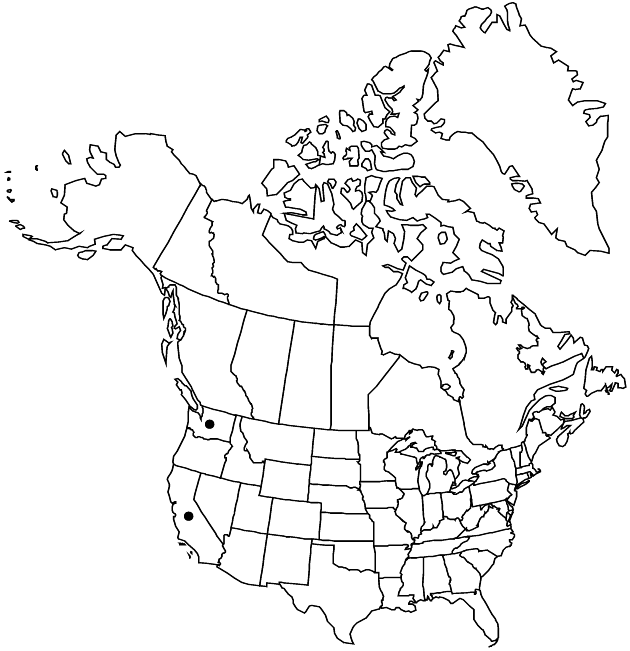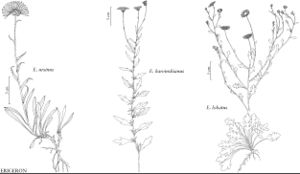Erigeron karvinskianus
in A. P. de Candolle and A. L. P. P. de Candolle, Prodr. 5: 285. 1836.
Perennials, often short-lived, 10–100 cm; fibrous- or taprooted, caudices woody, usually simple, stems sometimes rooting adventitiously. Stems erect to sprawling or decumbent (small leaf tufts in axils of larger leaves), sparsely strigose to glabrate, eglandular. Leaves basal (and proximal cauline withering by flowering) and cauline; cauline blades elliptic to obovate, mostly 10–40(–50) × 5–13 mm, usually relatively even-sized along stems, margins entire or with 1–2 distal pairs of acute, mucronulate teeth or lobes, faces sparsely and loosely strigose to hirsuto-villous, eglandular. Heads 1–5 (usually from branches distal to midstem). Involucres 2.5–3.5 × 7–10 mm. Phyllaries in 3–4 series, sparsely strigose to hirsuto-villous or glabrate, sometimes minutely glandular. Ray florets 45–80; corollas 5–8 mm, laminae not or slightly coiling, white, sometimes drying pinkish. Disc corollas 2–3.1 mm. Cypselae 1–1.4 mm, 2-nerved, faces sparsely strigose; pappi: outer of setae, inner of 15–27 bristles. 2n = 18, 27, 36 (from Mexico, Central America, South America).
Phenology: Flowering Apr–Aug.
Habitat: Moist, disturbed sites, shaded rock walls, cement cracks
Elevation: 300–1100 m
Distribution

Calif., Mexico, Central America, introduced in West Indies, South America, Europe, Africa, Pacific Islands, Australia.
Discussion
Erigeron karvinskianus is most abundant in tropical and subtropical regions; it is widely cultivated and escaped.
Selected References
None.
